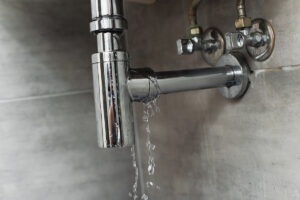
A water pipe replacement is sometimes necessary when pipes have undergone significant damage or long-term wear and tear.
Water pipes are an essential component of any plumbing system, ensuring the smooth and uninterrupted flow of water throughout our homes. Over time, however, these pipes can deteriorate, leading to various issues that may necessitate a water pipe replacement.
Corrosion
One of the primary reasons for water pipe replacement is corrosion. Over the years, pipes made of materials like galvanized steel or iron can corrode, leading to the formation of rust and compromising the structural integrity of the pipes. Corroded pipes not only reduce water quality but also pose a risk of leaks and bursts, potentially causing extensive damage to your property.
Leakage
Water leaks are a common plumbing issue that may arise due to various factors, including aging pipes, joint failures, or external damage. Persistent leaks can lead to water wastage, increased utility bills, and even water damage to walls and foundations. Replacing the damaged pipes is crucial to preventing further deterioration and maintaining a water-efficient household.
Low Water Pressure
Low water pressure can be a frustrating experience and may result from various factors, including pipe blockages, sediment buildup, or internal corrosion. Old and corroded pipes may restrict the flow of water, leading to diminished water pressure throughout the house. Upgrading to new, more efficient pipes can significantly improve water pressure and overall system performance.
Material Degradation
The material of your water pipes plays a crucial role in their longevity. Older homes may have pipes made of materials like lead or polybutylene, which are now known to pose health risks or have a limited lifespan. Replacing these outdated pipes with modern, safe materials such as copper or PEX is essential for ensuring the health and safety of your household.
Tree Root Infiltration
In some cases, tree roots can infiltrate underground pipes, causing blockages, leaks, and even pipe damage. The growth of tree roots seeking water sources can put immense pressure on pipes, leading to cracks and structural issues. A thorough inspection and replacement of affected sections may be necessary to prevent ongoing problems.
Pipe Erosion and Scaling
The accumulation of scale and sediment inside pipes can lead to erosion over time, affecting water quality and system efficiency. Scaling is more common in regions with hard water, where minerals deposit on the inner surface of the pipes. Regular maintenance, including descaling, can help, but in severe cases, replacement may be the most effective solution.
Changes in Water Quality Standards
As water quality standards evolve, older pipes may not meet current regulations. This is particularly true for pipes that contain materials harmful to health, such as lead. Upgrading to pipes that comply with modern safety standards ensures that your water is free from contaminants and meets the necessary health requirements.
Call Mahon Plumbing Today
If you still have more questions regarding your plumbing, we here at Mahon Plumbing are here to help. We have been serving the wider Baltimore area since 1994, so we have 25 years of experience to back up our fantastic service! Call us at our Baltimore location at 410-766-8566 or our Pasadena location at 410-636-7944. Be sure to keep up with us on social media by following us on Facebook or Twitter.
